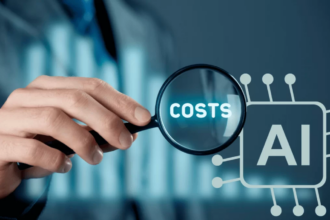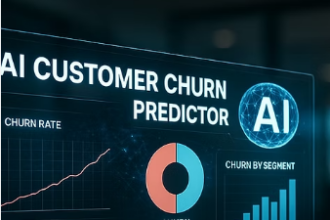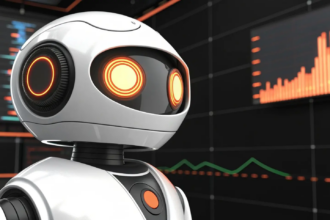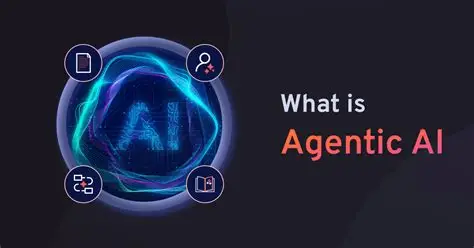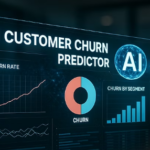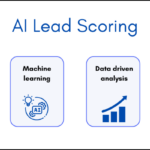I will touch on What is Agentic AI and go in details what it means. Agentic AI is a type of AI that can act automatically, making decisions and achieving objectives with little assistance from a person.
Unlike general AI, it possesses the ability to formulate a strategy and autonomously modify and perform the required tasks. This is a game changer for a lot of sector including medicine, finance, robotics, and business automation.
What is Agentic AI?
Agentic AI is any artificial intelligence system that is built to operate independently, make choices, and accomplish objectives without much human interaction. Traditional AI responds to commands, and analyzes statues.
However, agentic AI is capable of Planning, adapting, and performing duties in Dynamic surroundings. Agentic AI employs decision-making algorithms, predictive modelling, and reinforcement learning.
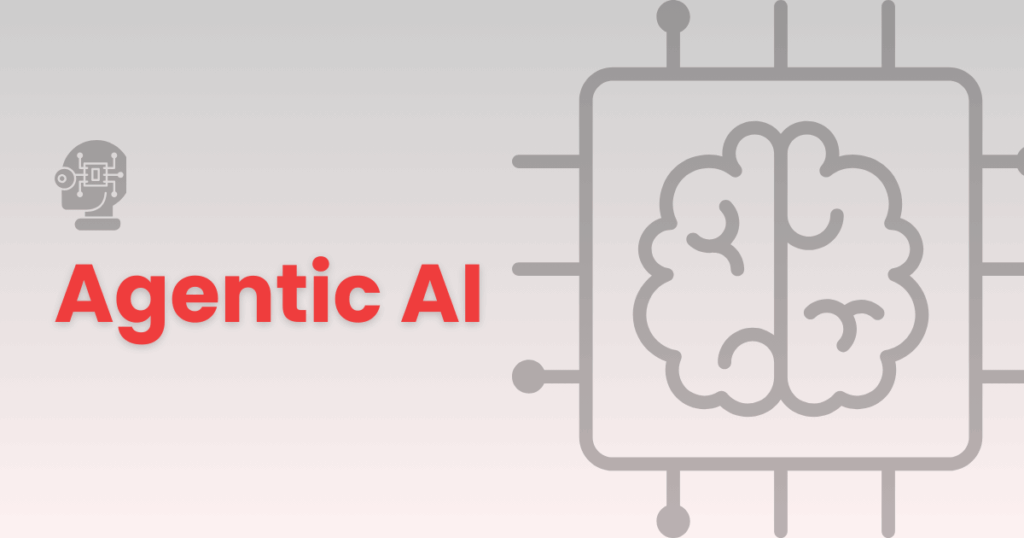
As such, they are able to work efficiently in Several these industries: Finance, healthcare, robotics, and automated business productivity.
These systems are gaining traction due to their efficiency, versatility, and remarkable ability to solve problems. Agentic AI systems must be understood and addressed responsibly to utilize any of their potential in modern technology.
How agentic AI works
Let me clearly illustrate how Agentic AI works in a more sequential manner:
Goal Definition: Agentic AI embarks on a task with a specific objective that needs to be accomplished.
Perception & Data Collection: It identifies and collects pertinent information by using sensors, APIs, or systems.
Decision Making: The AI evaluates the information using algorithms, predictive models, and reasoning to come up with the optimal solution.
Action Execution: The AI takes the optimal solution and performs the necessary steps or sub-tasks by itself in order to meet the defined objectives.
Learning & Adaptation: The AI uses reinforcement learning or behavioral feedback to assess the outcome and uses it to better itself in the future.
Autonomy & Planning: Without the aid of human, the AI is capable of devising multi-level plans and can adapt to fluctuating circumstances.
Applications of Agentic AI
Agentic AI can be used in different industries and changes how tasks are done and how decisions are made.
Agentic AI in business automates business processes, optimally manages supply chains, and aids in strategic business decision-making. Agentic AI in healthcare assists in complex medical data analysis for diagnosis, treatment planning, and caring for patients.
Agentic AI in finance performs automated trading, portfolio management, and fraud detection. In robotics and autonomous systems, Agentic AI gives autonomy to drones, self-driving cars, and industrial robots.
Agentic AI improves support for customers, smart infrastructures, and other domains, thereby enhancing innovation and efficiency.
What are the advantages of agentic AI?
Autonomous Decision-Making
Agentic AI cannot work without human supervision.
Efficiency and Productivity
Agentic AI can perform given tasks in a more accurate manner than humanly possible.
Adaptability
Agentic AI can change its approach when given new information.
Predictive Capabilities
Agentic AI can offer possible outcomes using better strategies and risks through advanced algorithms.
Scalability
Agentic AI trades in multi-domain, complex and large-scale operations at the same time.
Innovation Enablement
Agentic AI facilitates the creation of new technology in fields like finance, healthcare and in the automation of business processes and robotics.
Continuous Learning
Agentic AI gets better through time with reinforcement learning and feedback mechanisms.
Challenges for agentic AI systems
Ethical Concerns – The lack of any human involvement creates a quagmire of accountability, bias, and fairness.
Data Privacy & Security – Sensitive data can be vulnerable to breaches or misuse.
Technical Complexity – Systems with planning, adaptable structures and the ability to learn ascertainably pose a heavy-weight concern.
Unpredictable Behavior – The more an entity is bought into an automatic system, the more its actions become ungrounded.
Integration Issues – Merging the social realm with Agentic AI is laden with challenges.
Regulatory & Compliance Barriers – The world is yet to solidify policies and guidelines concerning independent AI technology.
Resource Intensity – Any system with autonomous AI demands a heavy data and computing use.
Potential use cases for agentic AI
Business Automation: Automating operations, supply chains, and decision processes in an enterprise.
Health: Autonomous diagnostics and treatment assistance, and personalized medicine.
Finance & Trading: Predictive decision-making to trade, portfolio management, and fraud detection.
Robotics & Autonomous Systems: Allocating autonomy to drones, self-driving cars, and industrial robots.
Customer Support: AI agents respond to self-service queries, and can resolve complaints while giving personalized recommendations.
Smart Infrastructure: Optimizing management of energy grids, traffic control, and urban planning.
R&D: Performing autonomous hypothesis testing and answer analysis to speed up scientific discovery and testing.
Risks and drawbacks of agentic AI
Unintended Consequences
Giving AI too much control can result in harmful actions that we may not expect or want.
Ethical Questions
AI may make prejudiced decisions that go against our ethical standards.
Vulnerable Security
Systems may fall victim to cyberattacks or be manipulated through data poisoning.
Employee Layoffs
Complex automated processes can reduce human workers in specific industries.
Resource Constraints
Construction and upkeep of agentic AI is extremely expensive.
Regulatory Issues
Standards void of laws can make implementation difficult.
Trust in AI Systems
Over reliance can reduce human responsibility.
Pros and cons of agentic AI
| Pros | Cons |
|---|---|
| Autonomous Decision-Making: Operates independently with minimal human supervision. | Unintended Consequences: May take unpredictable or harmful actions. |
| Efficiency & Productivity: Completes tasks faster and more accurately. | Ethical Concerns: Decisions can reflect bias or conflict with societal norms. |
| Adaptability: Adjusts strategies based on changing data or environments. | Security Vulnerabilities: Can be targeted by cyberattacks or data manipulation. |
| Predictive Capabilities: Forecasts trends, risks, and outcomes effectively. | Job Displacement: Automation may reduce human labor demand. |
| Scalability: Handles complex, large-scale operations across domains. | High Resource Requirements: Needs significant computing power and data. |
| Continuous Learning: Improves over time through feedback and reinforcement. | Regulatory Challenges: Lack of clear laws and standards for autonomous AI. |
Future of Agentic AI
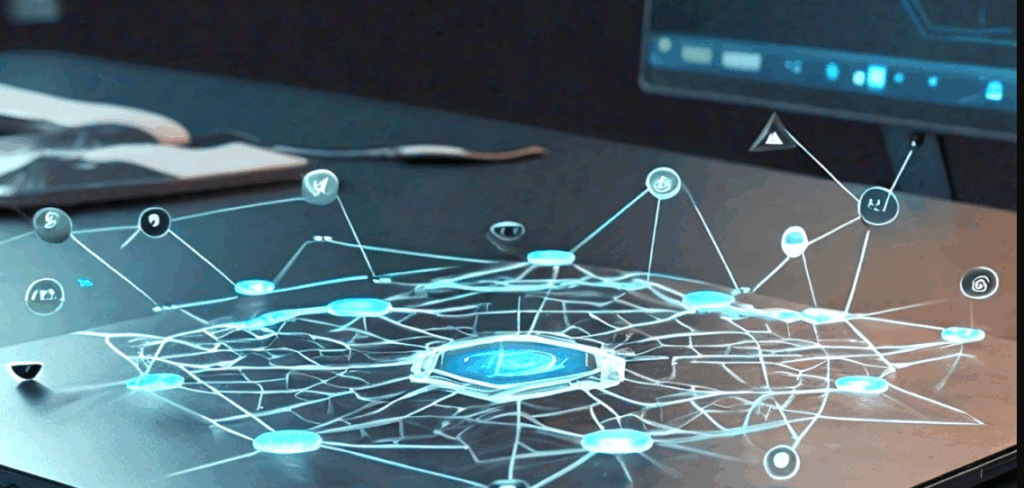
As technology increases, the future of Agentic AI remains promising, offering greater autonomy, intelligence, and adaptability. Within the next few years, agentic AI is supposed to help many industries, including healthcare, finance, robotics, and smart infrastructure.
Autonomous, adaptable, and intelligent systems will, in turn, improve efficiency and spark innovation.
Modern-day challenges will also predict the decision-making processes of complex, shifting systems with little to no human involvement, thanks to the agentic AI’s continuous learning attributes.
On the contrary, agentic AI will need ethical oversight and thorough regulatory and security frameworks. All in all, society will face many challenges with the evolution of agentic AI, however, the transformation it provides will make the obstacles worth it.
Conclusion
In closing, Agentic AI is an advanced form of Artificial intelligence that can operate independently, learning constantly, and pursuing objectives through thinking in a associative manner and doing as little as possible with humans.
Agent AI can do all of this in a range of fields from health and finance to robotics and business, all while increasing efficiency, predictive analytics and scalability.
Also, agentic AI is a new technology that can help with the ethical, security and compliance to regulation hurdles that current technologies have encountered impacting the way people think, and solve problems while aiming to increase automated productivity.
FAQ
How does Agentic AI differ from traditional AI?
Unlike traditional AI, which primarily responds to instructions or analyzes data, agentic AI can plan, adapt, and execute tasks independently in dynamic environments.
What are the main applications of Agentic AI?
It is used in business automation, healthcare, finance, robotics, smart infrastructure, and research, where autonomous decision-making and adaptability are crucial.
What are the advantages of Agentic AI?
Key benefits include efficiency, scalability, predictive capabilities, continuous learning, and the ability to operate independently across complex systems.
What risks are associated with Agentic AI?
Risks include ethical concerns, security vulnerabilities, unintended consequences, job displacement, high resource requirements, and regulatory challenges.

